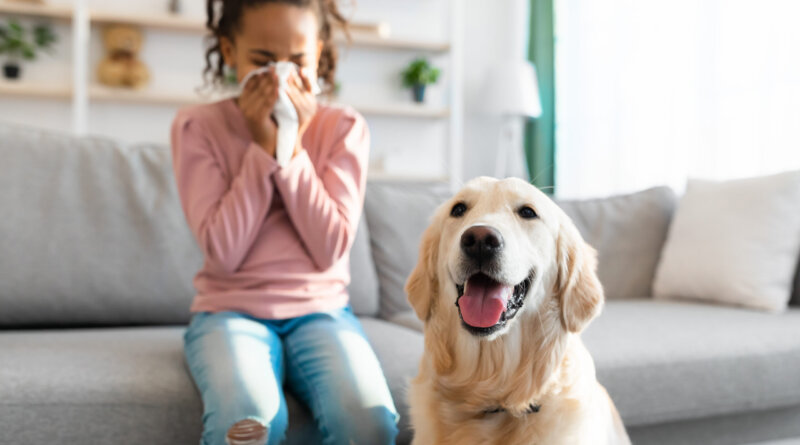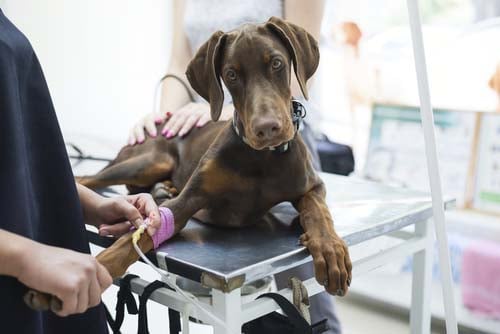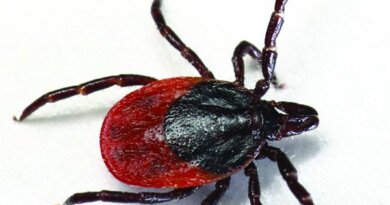Why Dogs with Cancer Smell Bad – Top Dog Tips
One surprising indicator of cancer in dogs is their peculiar odor, making us wonder: “Do dogs with cancer smell?”
Our beloved furry friends are significant in our lives as dog owners.
Witnessing them in pain, particularly from cancer, can be heart-wrenching.
Acknowledging that dogs with cancer smell bad are disheartening, and managing this unpleasant aroma can be challenging.
Nevertheless, comprehending the scientific rationale behind why dogs with cancer emit such an odor is essential.
This article delves into the association between the smell of cancer in dogs and its impact on their scent profile, encompassing common types of cancer prevalent among canines.
So if you’ve been pondering over questions like “do dogs with cancer smell bad?”, continue reading to gain valuable insights into this phenomenon.
Do Dogs with Cancer Smell?
Cancer is a disease that impacts a dog’s body in numerous ways.
When cancer cells increase and multiply, they emit specific chemicals that can modify the natural scent of dogs.
This change results in a smell of cancer in dogs that is hard to overlook.
Furthermore, dogs with cancer smell bad not only due to these chemicals but also because the disease weakens their immune system.
This weakened state makes them more prone to bacterial overgrowth and infections, which can further contribute to the unpleasant odor.
Common Types of Cancer in Dogs and Their Associated Smells
Various kinds of cancer exhibit unique smells, and it’s crucial to identify the scent linked to specific cancer types in dogs.
For instance, lymphoma, a form of cancer that impacts the lymphatic system in dogs, can result in a sweet, fruity aroma.
Conversely, melanomas–skin tumors often found in dogs with cancer–can emit a foul-smelling odor, leading people to say that dogs with cancer smell bad.
Additionally, bone cancer in dogs can trigger a distinct scent reminiscent of rotting. This is why a dog with bone tumors smells bad.
Recognizing these particular smells of cancer in dogs is essential for early detection and effective treatment.
How to Detect Cancer in Dogs
If you believe your dog might have cancer due to a potential smell of cancer in dogs or notice that dogs with cancer smell bad, it’s crucial to visit the veterinarian for an in-depth assessment promptly.
The veterinarian can perform a biopsy to verify the presence of cancer in your dog with a distinctive smell and identify the specific type of cancer.
In certain instances, a biopsy may not be required, as the veterinarian could diagnose a dog with cancer smell through alternative imaging tests, such as x-rays or ultrasounds.
Other Signs of Cancer in Dogs to Watch For
Although the smell of cancer in dogs is a prominent indicator, it’s not the sole symptom to be aware of.
Dogs with cancer may exhibit other warning signs, such as:
- The presence of lumps or bumps on their body
- Alterations in appetite or experiencing weight loss
- Challenges in breathing or persistent coughing
- Experiencing lethargy or weakness
- Shifts in behavior or mood
If you observe any of these symptoms, including a cancer smell, it’s crucial to promptly take your furry friend to the veterinarian for a thorough examination.
Treatment for Canines with Cancer and Odor Issues
Cancer is a scary diagnosis for any pet owner. Still, luckily there are treatments available that can give your dog a good quality of life.
Radiation Therapy
One common treatment for canine cancer is radiation therapy, which can effectively shrink tumors.
Surgery
Surgery is another option, and it may be possible to remove the tumor entirely depending on the type and location of cancer.
Chemotherapy
Chemotherapy is another treatment option, and while it can be effective, it can also cause some side effects like nausea and hair loss.
Based on the cancer type and other variables, your veterinarian can help you decide whether or not chemotherapy is the best option for your dog.
You can also do some things at home to help your dog feel better. Suppose your dog is experiencing nausea from chemotherapy.
In that case, you can give them small meals more often throughout the day or feed them bland foods like boiled chicken and rice.
You should also make sure they have plenty of water to drink.
If your dog is losing their hair due to chemotherapy, you can brush them with a soft brush to help soften its coat and make them feel more comfortable.
Regular Grooming and Care
Also, it’s important to keep your dog clean with regular baths with a mild shampoo.
Use a deodorizing spray or wipes between baths. Avoid using anything with alcohol or fragrances because they can irritate your dog’s skin.
It would be best to brush your dog’s teeth regularly to help prevent gum disease, which can cause bad breath.
Finally, give your dog lots of love and attention during this difficult time – they need it more than ever!
Managing the Smell of Cancer in Dogs
Dealing with the smell of cancer in dogs can be daunting, but there are effective methods to lessen the odor.
Regular bathing and grooming can contribute to maintaining your dog with cancer smelling clean and fresh.
Additionally, frequently washing bedding and other fabrics is crucial in eliminating lingering smells.
Utilizing odor-neutralizing sprays or candles can further aid in diminishing the bad scent associated with dogs with cancer.
It’s essential to avoid perfumes or other fragrant products, as they may overwhelm your dog and potentially trigger allergic reactions.
Caring for Dogs with Cancer and Odor at Home
Caring for a dog with cancer can be difficult, and one of the most challenging aspects can be dealing with the odor that can come with the disease.
A few things you can do will help manage the smell and make your dog more comfortable.
First, keep their fur clean and free of any debris. You may need to shampoo them more frequently than usual, and using a mild, unscented shampoo will be best for their skin.
You can also take them in an anti-bacterial solution for regular baths to help control the odor. If their skin irritates, talk to your vet about using a medicated ointment or spray.
In addition to keeping their fur clean, you’ll also want to ensure their bedding is fresh and free of odors.
Wash it regularly in hot water, and consider using a disinfectant or deodorizer.
Finally, pay attention to what your dog is eating. Cancer can cause changes in appetite, so they may not be interested in their regular food.
However, you’ll want to avoid anything that could worsen the odor. With your vet, decide what is best for your dog regarding diet.
Why Dogs with Cancer Smell Bad: Conclusion
Cancer is a devastating disease for humans and dogs, and understanding the connection between the smell of cancer in dogs and early detection is crucial for effective treatment.
Recognizing that dogs with cancer smell bad aren’t the only symptom. It’s essential to be vigilant for other signs of this disease.
If you suspect your dog may have cancer due to a noticeable odor or changes in their behavior, it’s important to take them to the veterinarian immediately.
Early detection and treatment can help improve the prognosis and quality of life for a dog with cancer smell.
Emphasizing this connection could help save your beloved pet’s life.
READ NEXT: Top 7 Most Common Cancers in Dogs







